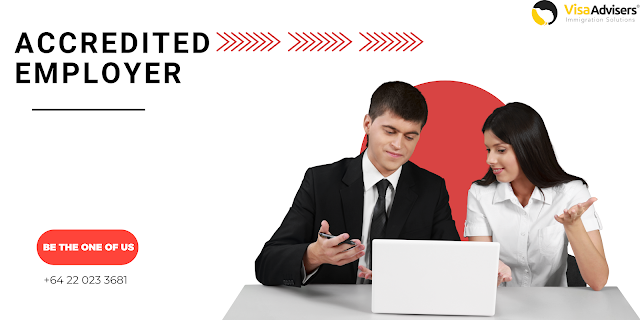What Does Being An Accredited Employer Mean?

Being an accredited employer might mean a variety of things to a variety of people, but in general, it indicates that your business satisfies a number of predetermined quality and safety requirements. This is significant since it indicates that you are offering good work for your employees as well as the possibility for them to progress in their professions. Accreditation is also important if you wish to take part in government programmes such as the H-1B visa programme or specific sorts of tax benefits. Accreditation allows you to demonstrate that your company satisfies the highest requirements that are currently available. Take a gander at our rundown of the most typical accreditation programmes in the event that you are unsure as to whether or not your business is accredited.
In this blog post, we’ll look at what it means to be an accredited employer and the benefits of working for one.
Employer Accredited Work Visa – Do We Need To Get Accredited?
There is a wide variety of options available for visas sponsored by employers, and each one has its own specific requirements. One of these is called the Employer Accredited Work Visa, and it enables businesses to sponsor foreign workers for particular roles in their organisation. However, in order to apply for this visa, is it necessary for you to be a recognised employer?
Both yes and no could be correct answers. With the Employer Accredited Work Visa, there is no need for the sponsoring company to go through any sort of formal accreditation procedure; nonetheless, they must still meet certain requirements. The ability to show a commitment to equal employment opportunity principles, a history of hiring locally, and a track record of providing high-quality training and development opportunities are all necessary.
We strongly suggest that you consult with an expert immigration attorney if you are unsure as to whether or not your company satisfies these requirements. Such an attorney will be able to evaluate your situation and offer direction as to how you should move forward.
Future of the Skilled Migrant Category
The Skilled Migrant Category (SMC) is a points-based system that allows people with specific skills and experience to migrate to New Zealand. The SMC is designed to help meet New Zealand’s current and future skill needs.
At the moment, eligibility requirements for the SMC require applicants to be less than 55 years old and to have earned at least 60 points on the points scale. Applicants must also have a job offer from a certified employer in an occupation that is listed on the Long Term Skill Shortage List in order to be eligible for the SMC (LTSSL).
This SMC is always adapting in order to provide the most effective solution for New Zealand's skill requirements. In recent years, alterations have been made to the list of occupations that are eligible for the SMC, as well as the point criteria for candidates. New applicants must now have a certain number of points. Furthermore, the New Zealand government has implemented a brand new mechanism for the SMC called "expressions of interest," which would provide immigration officials with a higher degree of control over who applies for the visa.
Thinking forwards, it is expected that the SMC will develop further in order to best satisfy New Zealand's shifting skill requirements. The New Zealand government has stated that it is dedicated to making sure that the SMC continues to be a successful method of luring highly talented immigrants to New Zealand.
Tourist visa then Partner visa New Zealand
If you're planning on moving to New Zealand to be with your partner, you'll first need to obtain a tourist visa. Once you arrive in the country, you can then apply for a Partner visa.
To be eligible for a Partner visa in New Zealand, you must be in a committed relationship with a New Zealand citizen or permanent resident. You'll need to provide evidence of your relationship, such as joint bank accounts, shared property ownership, or birth certificates for any children you have together.
You live and work in New Zealand indefinitely once your application has been approved, you will be issued a temporary visa. You are eligible to apply for permanent residency after two years have passed.
Since we are an approved employer, we are able to assist you in accelerating the processing of your application for a Partner visa. Your chances of having your visa application accepted will be considerably improved if you allow us to give evidence of the job offer and employment contract that you have been extended.



Comments
Post a Comment